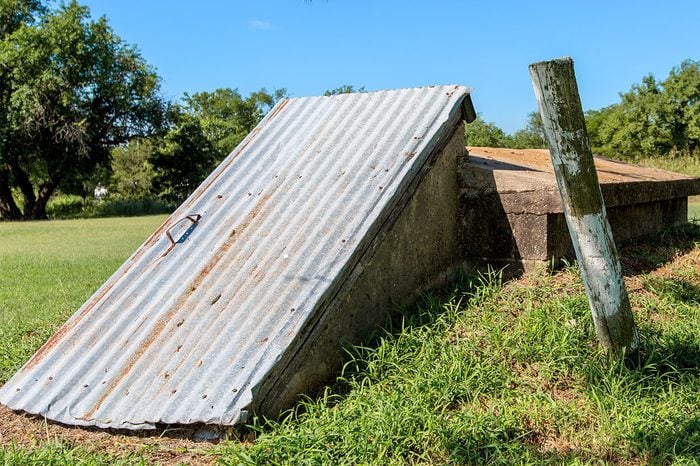Protecting Yourself From High Winds During Fast Storms

Table of Contents
Understanding High Wind Risks During Fast Storms
High winds associated with fast storms, such as hurricanes, tornadoes, and severe thunderstorms, pose significant threats. Knowing your risk and recognizing warning signs are the first steps to effective storm safety.
Identifying High-Risk Areas
Geographical location plays a crucial role in determining your vulnerability to high winds.
- Coastal Regions: Areas along coastlines are highly susceptible to hurricane-force winds and storm surges, leading to significant wind damage and flooding.
- Plains: The flat, open landscapes of the plains are particularly vulnerable to tornadoes, which can bring incredibly destructive high winds.
- Mountainous Regions: While less prone to widespread high winds, mountainous areas can experience localized gusts and downbursts that are intensely powerful.
Resources for checking local weather forecasts and storm warnings are readily available:
- National Weather Service (NWS): The NWS provides detailed weather forecasts, watches, and warnings across the United States.
- Local News: Local news channels and websites offer up-to-the-minute weather reports specific to your area. Staying informed through multiple channels is crucial.
Recognizing Warning Signs
Recognizing the warning signs of approaching fast storms and high winds is critical for timely action.
- Darkening Skies: A sudden and dramatic darkening of the sky is often a precursor to severe weather.
- Sudden Drop in Temperature: A rapid decrease in temperature can signal the arrival of a cold front and associated strong winds.
- Unusual Calm Before the Storm: An eerie stillness before a storm can indicate the eye of a hurricane or a period of calm before strong winds hit.
Different types of severe weather warnings and alerts include:
- Tornado Warning: A tornado has been sighted, and immediate action is required.
- Hurricane Warning: Hurricane conditions are expected within a specific timeframe.
- High Wind Warning: Sustained high winds are expected.
Upon receiving a warning, seek shelter immediately. Time is of the essence.
Protecting Your Home and Property from High Winds
Preparing your home and property before a fast storm hits is vital to minimizing wind damage. Taking proactive steps can significantly reduce the risk of damage and injury.
Securing Your Exterior
Securing your home's exterior is paramount to protecting against high winds.
- Bring in Loose Items: Move all loose objects indoors – patio furniture, garbage cans, grills, yard decorations, anything that wind can pick up and turn into dangerous projectiles.
- Board Windows: Consider boarding up windows with plywood or storm shutters to prevent breakage. This is especially important in areas prone to high winds and flying debris.
- Reinforce Garage Doors: Garage doors are particularly vulnerable to wind damage. Reinforce them with additional bracing or close them securely.
- Trim Trees and Shrubs: Regularly trim trees and shrubs around your house to reduce wind resistance and the chance of branches breaking and causing damage.
Preparing Your Interior
Preparing the interior of your home involves securing loose items and gathering emergency supplies.
- Unplug Electronics: Unplug electronic devices to prevent damage from power surges during the storm.
- Secure Heavy Objects: Secure heavy furniture, appliances, and other heavy objects that could fall and cause injury or damage.
- Gather Emergency Supplies: Assemble an emergency kit that includes water, non-perishable food, a first-aid kit, flashlights, batteries, a battery-powered radio, and any necessary medications.
- Identify the Safest Room: Locate the safest room in your house. Generally, an interior room on the lowest level, away from windows, is the best option.
Staying Safe During High Winds and Fast Storms
Knowing how to react during a high-wind event is critical for your safety.
Safe Shelter Options
During high winds, seek shelter in a sturdy building. The safest options include:
- Basement: A basement offers the best protection from high winds and flying debris.
- Interior Room on the Lowest Level: If a basement is unavailable, an interior room on the lowest floor, away from windows and exterior walls, is a good alternative.
- Sturdy Building: If caught outside, seek shelter in a sturdy building away from windows.
Avoid windows and exterior walls. These are the most vulnerable points during a high-wind event. If you are in a vehicle, seek sturdy shelter immediately.
Emergency Procedures
Your actions during and after a high-wind event are crucial.
- Stay Informed: Continuously monitor weather reports for updates.
- Avoid Unnecessary Travel: Stay off the roads unless absolutely necessary. High winds can make driving conditions extremely hazardous.
- Report Damage: After the storm has passed, report any damage to your local authorities.
- What to do if power lines fall near your home: Stay far away and report it immediately to the power company.
- Post-Storm Safety Procedures: After the storm, check for damage, avoid downed power lines, and be aware of potential hazards.
Conclusion
Protecting yourself from high winds during fast storms requires preparedness and awareness. By understanding the risks, securing your property, and knowing where to take shelter, you significantly reduce your risk of injury or damage. Remembering these crucial steps is vital for your safety and the safety of your loved ones. High wind safety is a multifaceted issue requiring attention to detail, both before and after a storm.
Call to Action: Learn more about protecting yourself from high winds during fast storms and create a comprehensive safety plan for your family today. Stay informed and prepared, and stay safe!

Featured Posts
-
 May 9 2025 The Old North State Report Highlights
May 20, 2025
May 9 2025 The Old North State Report Highlights
May 20, 2025 -
 Tragedia Na Tijuca Incendio Destroi Escola Marcando Geracoes
May 20, 2025
Tragedia Na Tijuca Incendio Destroi Escola Marcando Geracoes
May 20, 2025 -
 Hamiltonin Ferrarin Sopimus Toiveet Murskautuivat
May 20, 2025
Hamiltonin Ferrarin Sopimus Toiveet Murskautuivat
May 20, 2025 -
 The Ftv Live Hell Of A Run A Retrospective On Its Controversies And Contributions
May 20, 2025
The Ftv Live Hell Of A Run A Retrospective On Its Controversies And Contributions
May 20, 2025 -
 Michael Kors Jet Set Style Now Available On Amazon
May 20, 2025
Michael Kors Jet Set Style Now Available On Amazon
May 20, 2025
Latest Posts
-
 Whats Sydney Sweeney Doing After Echo Valley And The Housemaid New Film Role Revealed
May 21, 2025
Whats Sydney Sweeney Doing After Echo Valley And The Housemaid New Film Role Revealed
May 21, 2025 -
 Sydney Sweeneys Next Role After Echo Valley And The Housemaid
May 21, 2025
Sydney Sweeneys Next Role After Echo Valley And The Housemaid
May 21, 2025 -
 A Hidden Gem The Western Neo Noir Starring Dennis Quaid Meg Ryan And James Caan
May 21, 2025
A Hidden Gem The Western Neo Noir Starring Dennis Quaid Meg Ryan And James Caan
May 21, 2025 -
 Dennis Quaid Meg Ryan And James Caans Forgotten Western Neo Noir
May 21, 2025
Dennis Quaid Meg Ryan And James Caans Forgotten Western Neo Noir
May 21, 2025 -
 Liverpool Dan Liga Inggris 2024 2025 Siapa Pelatih Yang Tepat
May 21, 2025
Liverpool Dan Liga Inggris 2024 2025 Siapa Pelatih Yang Tepat
May 21, 2025
